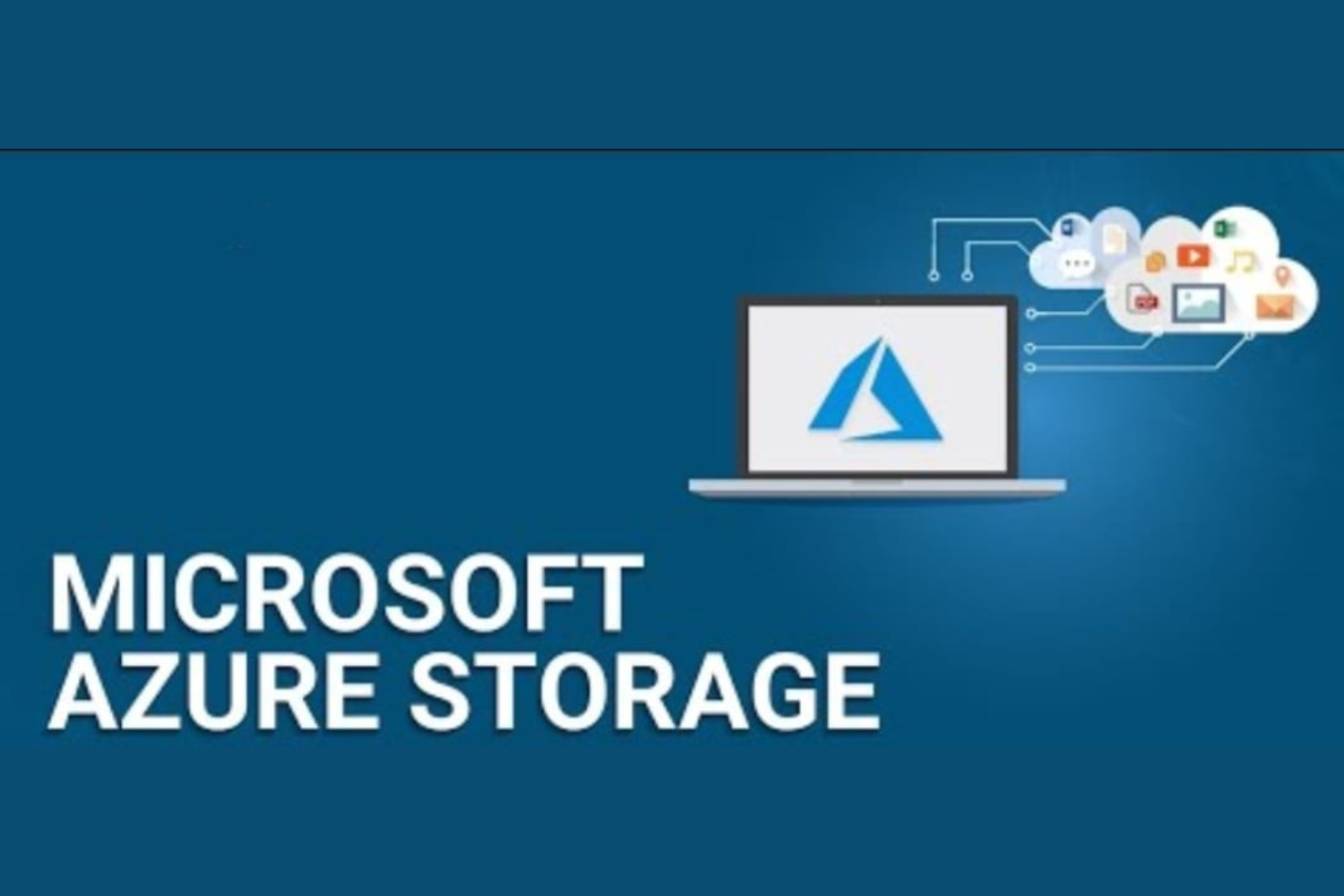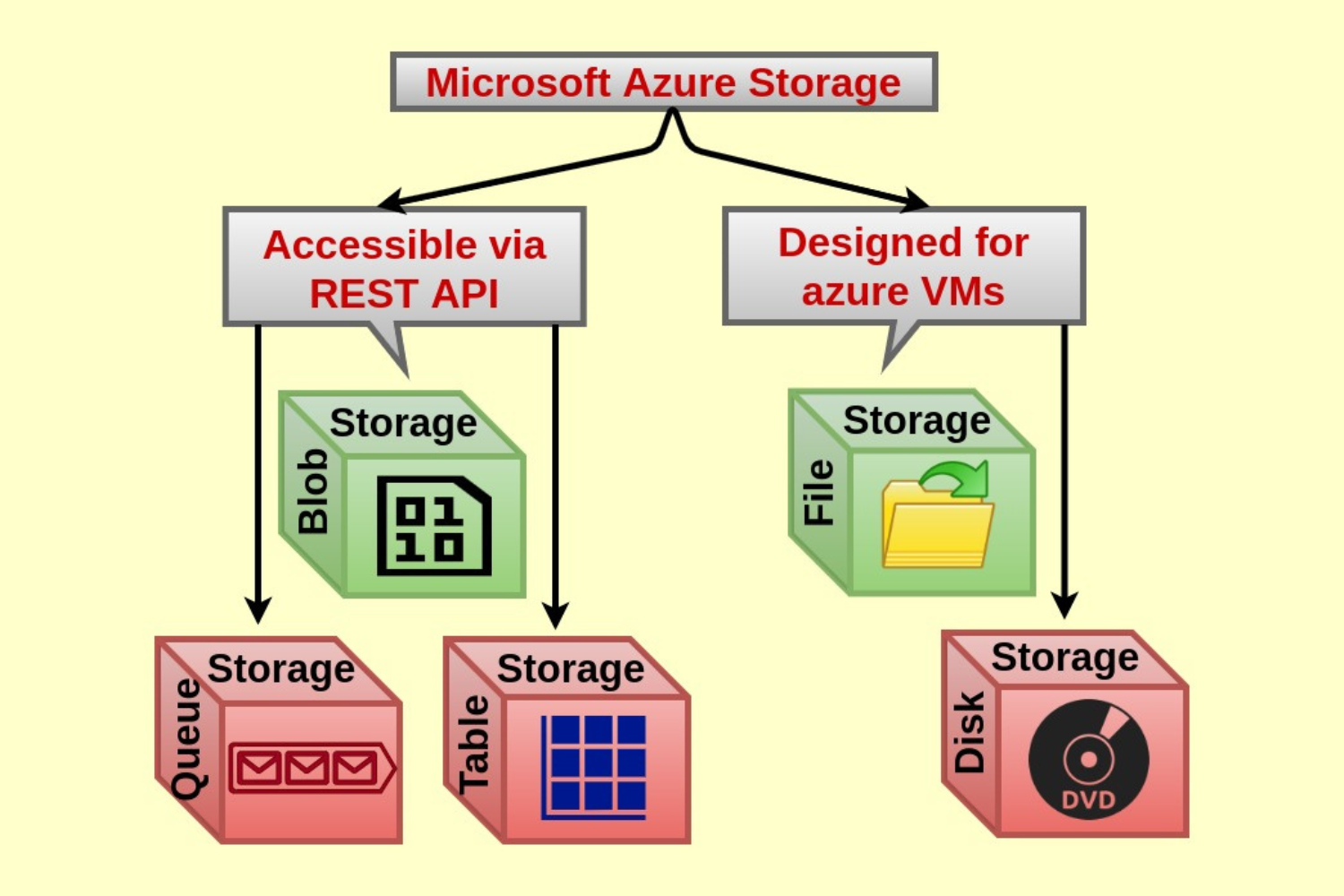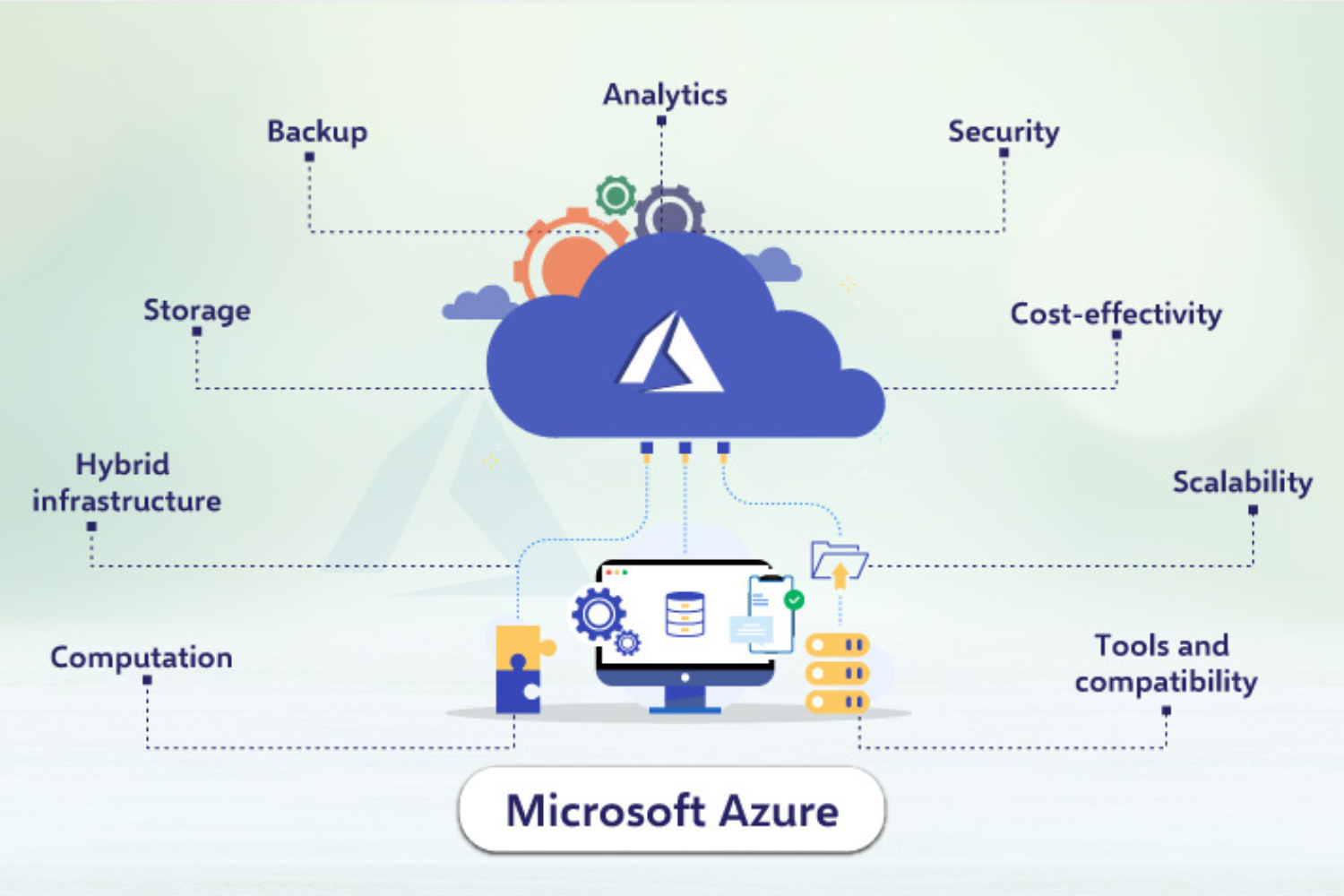
Microsoft Azure Storage
In Microsoft Azure, storage refers to the cloud-based data storage solutions and services provided by Microsoft as part of its cloud computing platform. Azure offers a variety of storage options to cater to different data storage and retrieval needs. These options include Azure Blob Storage for storing unstructured data like documents, images, and videos. Azure File Storage for creating network shares accessible by multiple virtual machines; Azure Queue Storage for building messaging applications; and Azure Table Storage for storing semi-structured NoSQL data. Additionally, Azure provides managed disk storage for virtual machines, which ensures high availability and reliability for critical workloads.
WORKING OF STORAGE IN MICROSOFT AZURE CLOUD COMPUTING:
Storage in Microsoft Azure is a crucial component of the cloud computing ecosystem, offering diverse services to efficiently manage and store data in the cloud. Azure provides several types of storage solutions, each tailored to specific use cases. Azure Blob Storage allows the storage of unstructured data, such as images, videos, and documents, in a scalable and secure manner. Azure File Storage enables the creation of network shares, facilitating file sharing among multiple virtual machines.

Azure Queue Storage serves as a messaging service, aiding in the development of decoupled and scalable applications by enabling asynchronous communication between various components. Azure Table Storage is a NoSQL data store designed for semi-structured data, featuring a key/attribute-based model for flexible data storage. Additionally, Azure offers managed disk storage, which ensures high availability and data durability for virtual machines, making it ideal for hosting critical workloads. These Azure storage services are highly scalable, reliable, and seamlessly integrated into applications and services running in the cloud, contributing to the efficient management and utilization of data in cloud computing environments.
TYPES OF STORAGE IN MICROSOFT AZURE CLOUD COMPUTING:
1. Blob Storage: Azure Blob Storage is a scalable and secure service for storing unstructured data, such as documents and multimedia, in the cloud.
2. File Storage: Azure File Storage allows you to create network shares for sharing files across multiple virtual machines in the Azure environment.
3. Queue Storage: Azure Queue Storage is a messaging service for building decoupled and scalable applications that use asynchronous communication between components.

4. Table Storage: Azure Table Storage is a NoSQL data store for semi-structured data, offering key/attribute-based storage and flexible data modeling.
5. Managed Disk Storage: Managed disks provide reliable and high-performance storage attached to virtual machines, ensuring data durability and availability for virtualized workloads in Azure.
BENEFITS OF STORAGE IN MICROSOFT AZURE CLOUD COMPUTING:
1. Scalability: Azure storage can easily scale to accommodate growing data needs, ensuring your applications have the storage resources they require.
2. Durability: Data stored in Azure is highly durable, with multiple copies kept in redundant locations to protect against data loss.
3. Accessibility: Azure’s global data centers provide low-latency access to data from anywhere, enhancing application performance.

4. Security: Azure storage includes robust security features, such as encryption and access control, to protect your data from unauthorized access.
5. Cost-Efficiency: Azure’s pay-as-you-go pricing model allows you to pay only for the storage you use, reducing capital expenses.
6. Backup and Recovery: Azure offers built-in backup and recovery options to safeguard your data against unexpected failures.
7. Integration: Azure storage seamlessly integrates with other Azure services, enabling efficient data management within the Azure ecosystem.
8. Compliance: Azure adheres to various industry standards and compliance certifications, making it suitable for organizations with regulatory requirements.
JOB ROLES OF STORAGE IN MICROSOFT AZURE CLOUD COMPUTING:
1. Azure Storage Administrator
2. Cloud Storage Engineer
3. Azure Data Analyst
4. Cloud Solutions Architect
5. Cloud Storage Consultant
6. Azure DevOps Engineer
7. Azure Cloud Developer
8. Cloud Security Analyst
9. Azure Database Administrator
10. Cloud Storage Operations Manager
USES OF STORAGE IN MICROSOFT AZURE CLOUD COMPUTING:
1.Data Backup and Recovery
2. Hosting Static Websites
3. Storing Application Data
4. Media and Content Distribution
5. Data Analytics and Reporting
6. Messaging and Queueing
7. Archiving and Long-Term Data Retention
8. Internet of Things (IoT) Data Storage
9. Disaster Recovery
10. Virtual Machine Storage
Course Highlights/ Details:
1. Suited for students, fresher’s, professionals, and corporate employees
2. Live online classes
3. 4-month program
4. Certificate of completion
5. Decision Oriented Program of Analysis
6. Live Classes by highly experienced faculties
7. Hands-on experience with real-life case studies.
Salary:
Azure Storage Administrators from SCODEEN Global have received packages ranging from ₹13 Lakhs to 35 lakhs per Annum.

CONCLUSION:
In conclusion, storage is a fundamental and versatile component in Microsoft Azure’s cloud computing ecosystem. Azure provides a range of storage solutions, from Blob and File Storage for unstructured data to Queue and Table Storage for various application needs. These services offer scalability, durability, and accessibility, making them essential for managing and safeguarding data in the cloud. Azure’s storage services not only enhance data management but also contribute to cost efficiency, security, and seamless integration with other Azure services. Whether it’s for backup, data analytics, or application hosting, Azure’s storage capabilities play a pivotal role in enabling businesses to harness the full potential of cloud computing while ensuring data reliability and accessibility.

